Alphabet Recognition Phonics Worksheets for Ages 6-9
5 filtered results
-
From - To
Welcome to our engaging collection of Alphabet Recognition Phonics Worksheets, specially designed for children aged 6-9! These worksheets are a valuable resource for reinforcing alphabet recognition and enhancing phonics skills in young learners. Each activity offers fun and interactive ways to help kids identify letters and connect them with sounds, ensuring a solid foundation for reading. Our printable worksheets feature colorful imagery, stimulating exercises, and varied formats to keep children motivated while learning. Whether at home or in the classroom, these worksheets will make phonics learning an enjoyable and effective experience for your children. Let's inspire them to become confident readers!
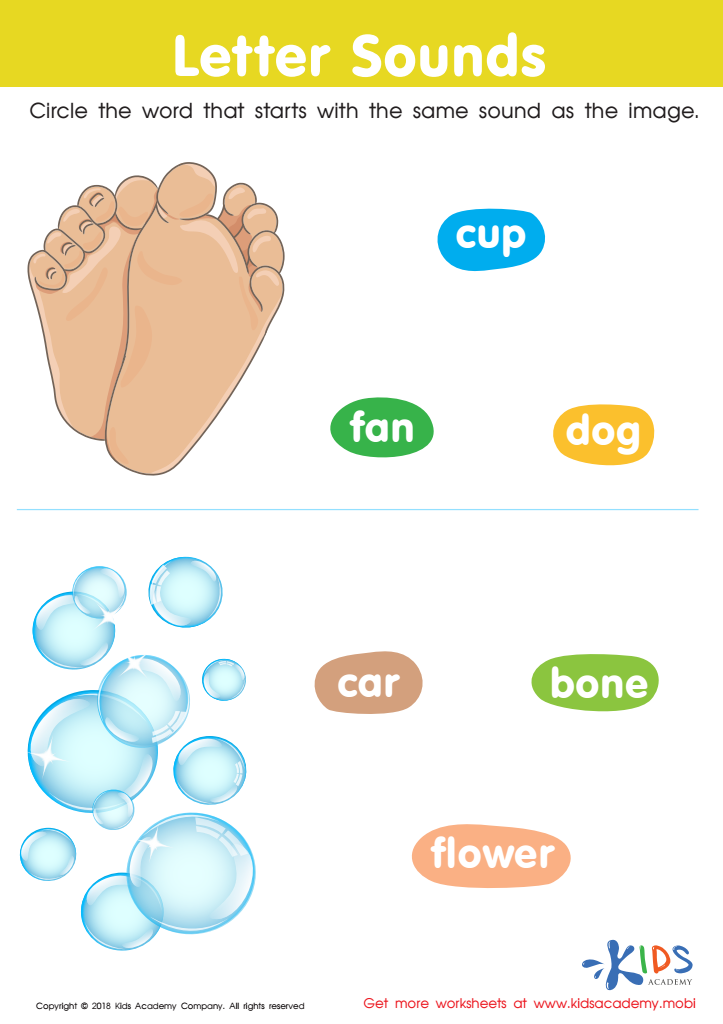

letter sounds Worksheet
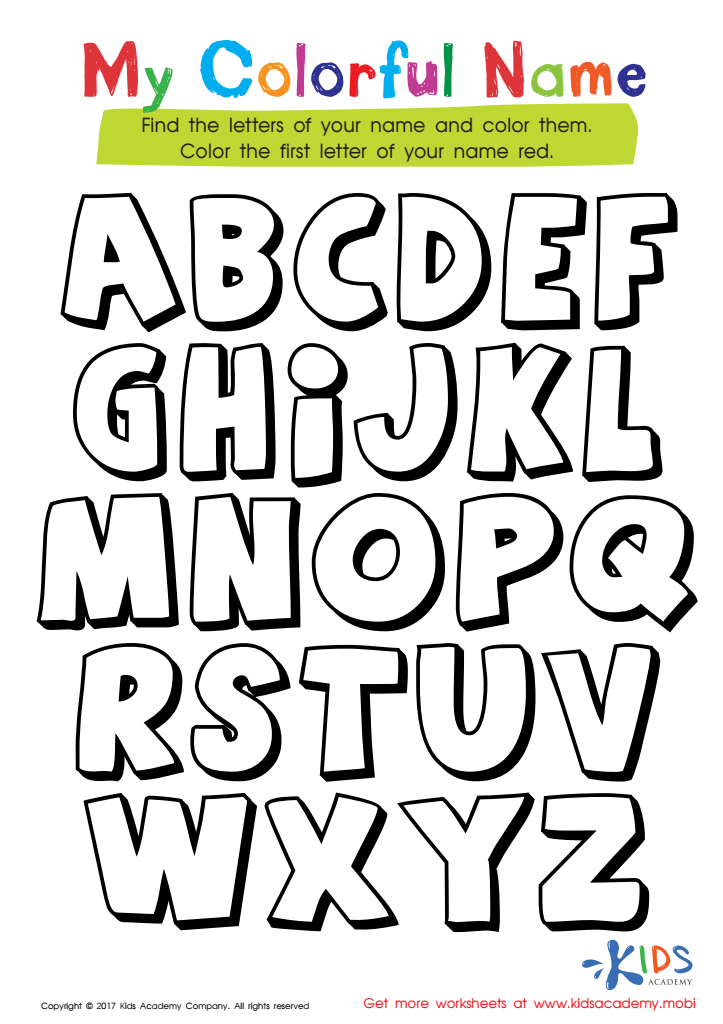

My Colorful Name Worksheet
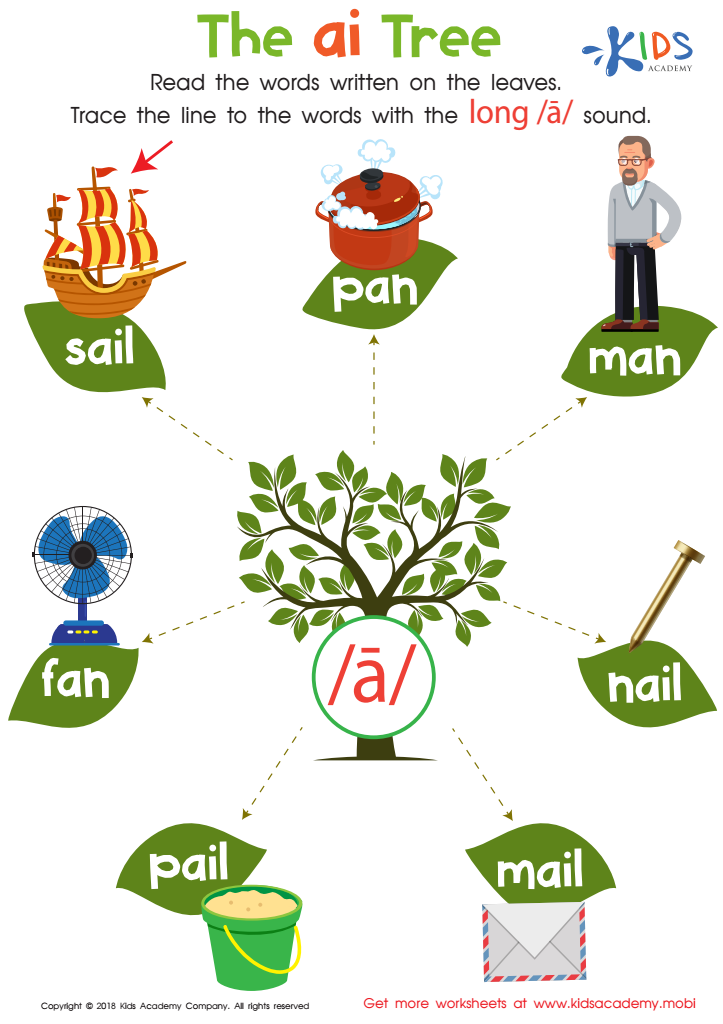

The AI Tree Worksheet
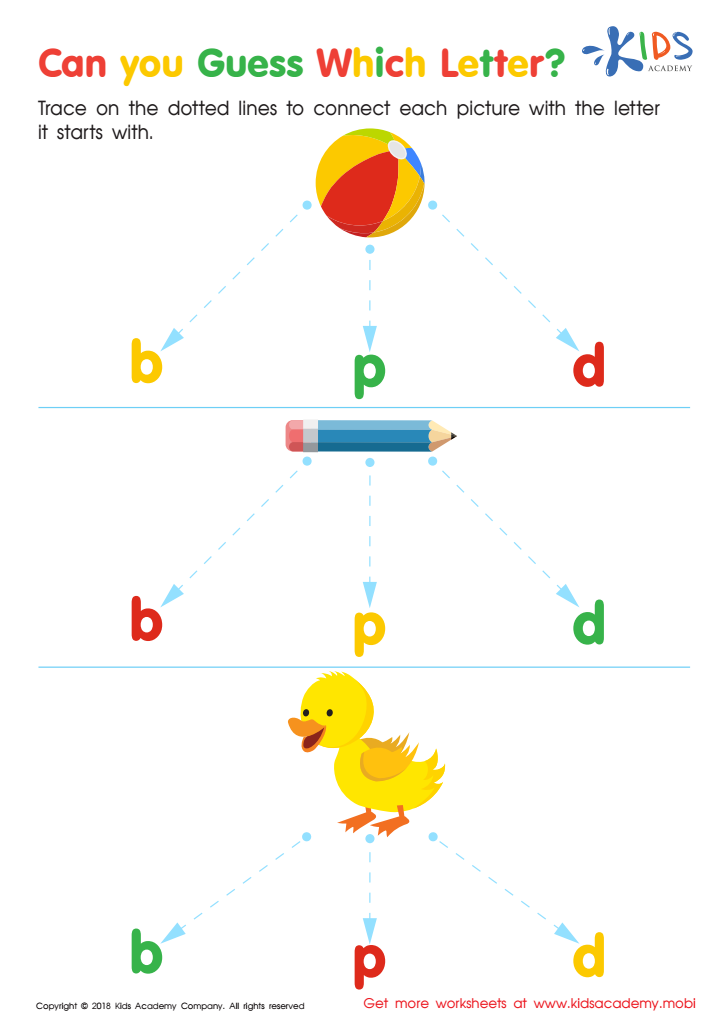

Can you Guess Which Letter? Worksheet
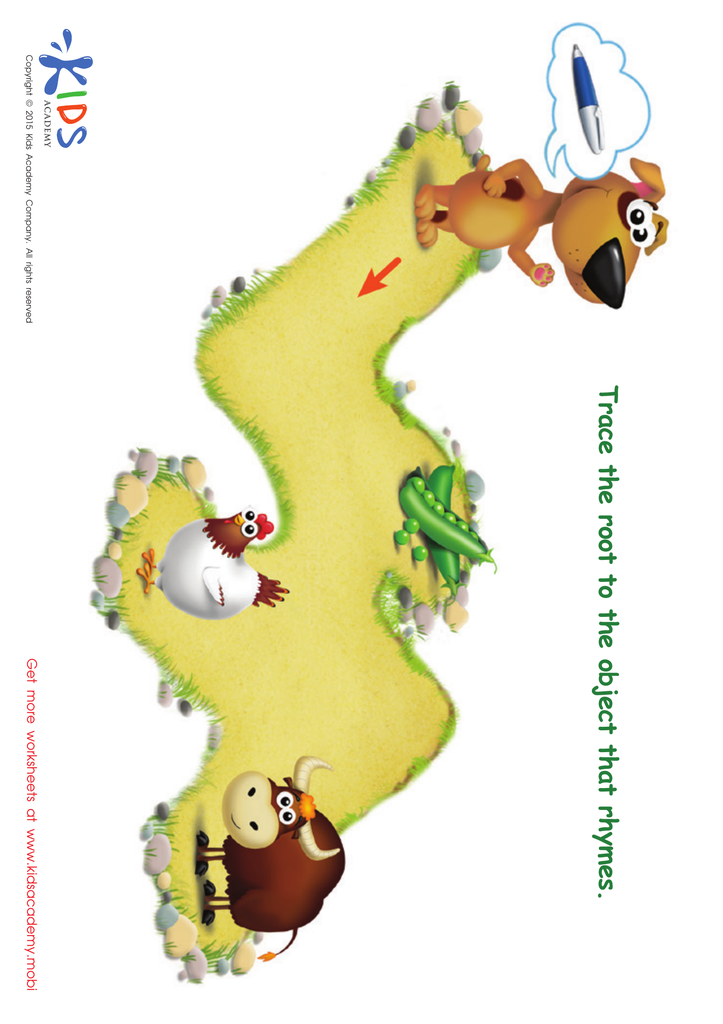

Pen Rhyming Words Worksheet
Parents and teachers should prioritize Alphabet Recognition and phonics for children aged 6 to 9 because these foundational skills are crucial for literacy development. At this age, children are transitioning from learning to read to reading to learn, making it vital to have a firm grasp on letter recognition and phonetic principles.
Alphabet recognition helps children identify letters and associate them with sounds, which is the cornerstone of reading. Children who can recognize letters swiftly are better equipped to tackle new words and enhance their vocabulary. Phonics, on the other hand, teaches children how to decode words by breaking them down into their constituent sounds, improving their reading fluency and comprehension.
Moreover, proficiency in these skills boosts children’s confidence as readers, encouraging a love for reading that will benefit them throughout their educational journey. Children who struggle with these foundational aspects may experience ongoing difficulties in reading, writing, and overall academic performance. By focusing on Alphabet Recognition and phonics, parents and teachers are investing in a child’s long-term success, enabling them to engage with a variety of texts and fostering critical thinking skills essential for future learning.
 Assign to My Students
Assign to My Students















